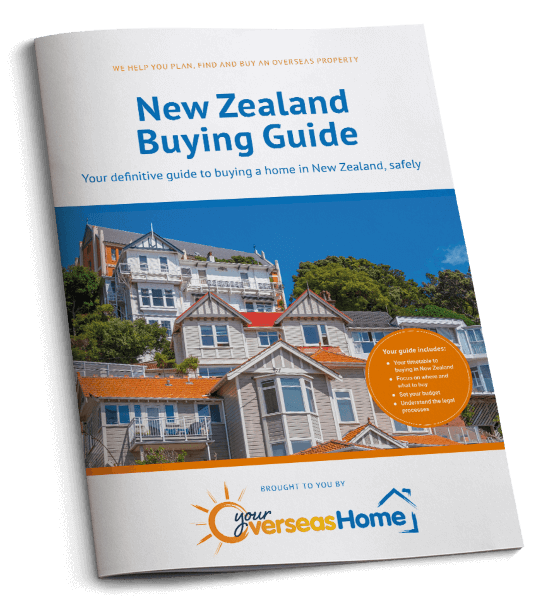The first essential port of call for realising your dreams of moving to New Zealand is conducting research into visas. As everyone’s circumstances are different, it can feel like a complete minefield. However, if you’re getting Today, we’re running you through the options for a New Zealand visa.
New Zealand visa
The easiest way to a New Zealand visa is having an employment opportunity. There are a variety of visa categories to help people with desirable skills make the move. The country is particular keen to attract certain professions, so hopefully you’ll be one of the lucky ones that’s in demand. Do bear in mind that some visas instantly grant family members the right to live and work, too. Others, however, will require separate applications.

Get the right New Zealand visa and you’ll soon be heading off to start your new life. Petr Sommer Photography / Shutterstock.com
Work visa options
Skilled Migrant Category Resident Visa
New Zealand is crying out for skilled migrants. As such, if your profession is in demand, the skilled migrant category visa could be your best bet. You can check the skills shortage list here. This visa is available to people aged 55 and under. If successful, you, your partner and your dependent children (under the age of 24) can live, work and study in New Zealand.
To apply, you’ll first need to complete an Expression of Interest. Whether or not this is successful will depend on how many points you clock up on their points system. Currently, migrants require 160 points (or more) to qualify to move to New Zealand. If your EOI is successful, you will be invited to apply for the visa.
Long-term skill shortage list work visa
Do you have employment experience, qualifications and occupational registration in a profession that’s listed on New Zealand’s Long Term Skill Shortage List? If you do, and also have an offer of employment in that field, this is your New Zealand visa. This is, in theory, a temporary visa – it has a duration of 30 months. However, if you work in the required industry for two years, you will then be able to apply for residency.
Securing this visa doesn’t automatically grant your partner or dependent children the right to move to New Zealand with you. They will have to lodge their own visa applications based on their relationship to you and your work visa.
Once you’ve worked in the profession for two years, your next step will be to apply for the Long Term Skill Shortage List Resident Visa. To be successful, you need to prove you have ongoing employment secured that pays a salary of more than NZ$45,000 (£22,530). This will allow you to live in the country indefinitely.
Talent (Accredited Employer) Work Visa
This is another good option for skilled workers to make that first step towards a permanent move to New Zealand. This visa is valid for 30 months and is available to applicants of 55 and under. To be eligible, you need to secure a job offer from one of New Zealand’s accredited employers. Again, securing this visa doesn’t automatically guarantee your partner or your children the right to live, work and study in New Zealand. As above, they will need to lodge their own visa applications, based on your visa.
Once you have worked for an accredited employer for a two-year period, you can go on to apply for the Talent (Accredited Employer) Resident Visa, which will allow you (and your partner and children) to live in New Zealand indefinitely. Also, for your application for this visa to be successful, you need to prove you have ongoing employment with said-accredited employer and a salary of $55,000 (£27,520).
Investor 1 Resident Visa
Should you have a cool $10 million (£5 million) floating around that you’re willing to invest in New Zealand over a three-year period, you can apply for this visa, which grants you, your partner and your children the right to move to New Zealand permanently. Furthermore, you may also be able to bring your car, boat (!) and all household possessions with you, without incurring customs charges.
Investor 2 Resident Visa
The slightly less decadent version of the Investor Visa works for experienced business-people who can prove they have $3 million (£1,500,520) in available funds or assets. Furthermore, you will need to complete an Expression of Interest (EOI), outlining your business experience, investment and settlement fund. Should your EOI be successful, you will be invited to apply for this visa. You will have a four-month period in which to do so. This visa is available for people up to the age of 65. However. they only issue 400 per year.
Entrepreneur Work Visa
If you want to move to New Zealand to set up a business, this visa is for you. Your application will need to contain a detailed business plan. Additionally, you need to prove you have a minimum of $100,000 (£50,000). You must you plan on investing this in your business. Furthermore, you must be able to notch up at least 120 points on the points scale. New Zealand Immigration will also conduct a little investigation into your financial background. If you’ve. Also, if you have a history of business fraud or financial wrongdoings of any kind, you won’t get this visa.
It’s worth noting that if you plan on starting a business in ICT, science, or a business that shows a ‘high level of innovation or export potential’ – it’s possible the $100,000 investment requirement might be waived. Get those thinking caps on!
Get yourself fully prepped for your move to New Zealand by downloading your free Emigration Guide today!
Talent (Arts, Culture, Sports) Work Visa
If you are particularly talented in art, sport or culture, are 55 or under, and have been sponsored by a New Zealand organisation that’s recognised for excellence in your field, you can apply for this 30 month visa. Once you have been living in New Zealand on this visa, working in your field with the organisation, you can apply for the Talent (Arts, Culture, Sports) Resident Visa, which allows you to live in New Zealand permanently.
Are you an Australian citizen or permanent resident?
If you are already an Australian citizen or permanent resident, you’re eligible to move to New Zealand under their Australian Resident Visa. Immigration will conduct a ‘good character’ test, to ensure you haven’t got a criminal record. To apply for this visa, you need to have already arrived in the country.
Family visa options
Partner of a New Zealand resident
If you want to move to New Zealand to live alongside your Kiwi partner, this is the New Zealand visa for you. To be granted permanent residency in this way, you need to prove that the two of you have been living together outside of NZ for five years or more. Your partner must be abroad when you make your application. If not, they must have been back in New Zealand for a period less than three months. If granted this visa, you (and any dependent children under 24) will be able to live, work and study in New Zealand.
Parent Retirement Resident Visa
If you’re hoping to move on a permanent basis to be closer to your child (who is a New Zealand citizen or resident), this visa is your best option. You will have to prove that you have an annual income of $60,000 (£30,000),. You’ll also need to show you have $1 million (£500,000) to invest in the country over the four-year investment period that the visa is valid for. Furthermore, you need to prove you have a $500,000 (£250,000) to live off. After the four years are up, you can apply for permanent residency.
Dependent Child Resident Visa
If you are the dependent child of a New Zealand citizen or permanent resident, you can apply for this visa to join them permanently. This visa is only open to those aged 24 and under.
Parents?
A Parent Resident Visa without all of the financial hurdles of the Parent Retirement Visa does exist. However, the quota is full and they’re not currently accepting applications. It’s worth keeping an eye on the website for when applications are re-opened.
Is it possible to buy property if I’m not resident in New Zealand?
At present, there are no restrictions on non-residents buying property in New Zealand. However, New Zealand’s Labour government have introduced a bill, the Overseas Investment Amendment Bill, due to come into force towards the end of 2018. This will ban non-residents from buying existing property or residential land, without first gaining permission from the Overseas Investment Office (OIO). The Bill is a direct response to New Zealand’s red-hot property prices. In Auckland in particular, a high number of mostly Chinese and Australian investors are snapping up all of the property – thus driving residents out of the market.
This means, it will still be possible to buy in New Zealand as a non-resident. You will just need to either buy new-build property, or apply for permission to buy. In order to get permission, you have to meet the terms of a ‘commitment to New Zealand’ test. You’ll have to show that your purchase is of ‘benefit to New Zealand’. Alternatively, you’ll have to prove that you will ‘increase the amount of housing on residential land’. This could be, for example, by building residential property.
Ready to move to New Zealand?
If you’re ready to take the leap and apply for your visa, make sure to download your free Buying Guide below. You’ll find out the next steps, including how to find property, what to look for in viewings. Additionally, you’ll learn about the legal and financial requirements when moving to NZ.

Get all of the key information and advice you need in our online guide to buying a house in New Zealand. You can also download it in PDF format for offline reading or printing. Fill in the form to the right to get your copy.






